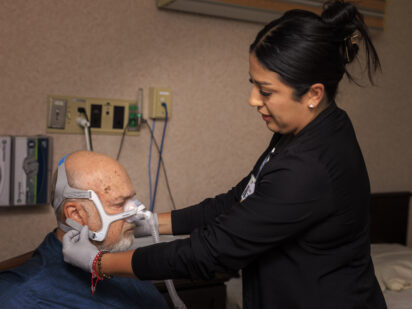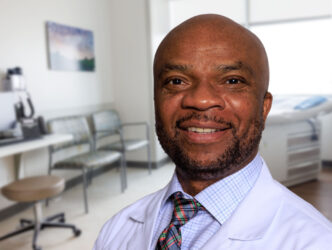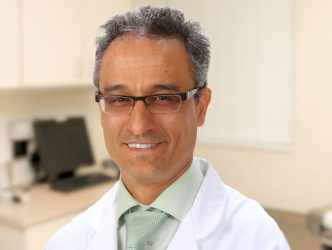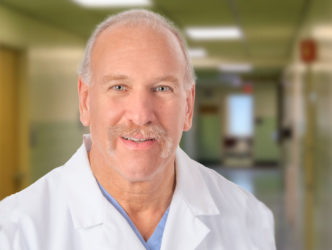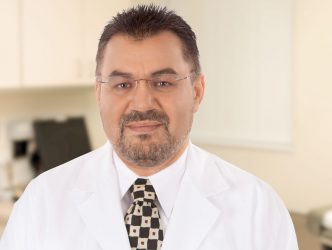Around seven years ago, when Bryon Peterson was diagnosed with sleep apnea, his initial treatment involved the use of a continuous positive airway pressure (CPAP) machine with the hope of being able to sleep better each night. That, however, was not the case and it got to the point where Bryon no longer used the CPAP machine because he was tired of fighting with it to get comfortable.
“I was fighting with the CPAP machine and mask every night for as long as I could and I eventually quit wearing it…I was having nightmares and such bad headaches from it,” said Bryon.
What seemed like an opportunity to get better turned into a moment of more frustration, but it eventually opened a door to get Bryon on track for a healthier, more consistent sleep schedule. Communication was a key component to getting the answers he was looking for.
“Another sleep test was done and that was when somebody finally explained the full process and results from a sleep study. I found out I was having more than 60 episodes in 60 minutes.”
Shortly after, Shakeel Tabish, MD, a neurologist at Trinity Health, called Bryon so they could sit down and meet. Dr. Tabish worked closely with Jutta Schmidt, a Certified Sleep Educator and manager of Trinity Health’s Sleep Center, as the two explained the sleep study and results to Bryon in great detail. Bryon mentioned this was extremely beneficial to him, as they explained things in a way that he could understand.
From there, Jutta and Bryon tried a few different things so he could be comfortable while wearing a mask. Since they began working together, Bryon mentioned that he has been able to wear a mask every night for the last six or seven weeks. As a Certified Sleep Educator, Jutta helps people like Bryon who are struggling with mask or CPAP tolerance.
“Explaining to me how I could tighten the mask where it would stop leakage, but it would not make it so tight to where it leaves marks on your face is something nobody did before. It was the simplest thing, but it made such a huge difference,” said Bryon.
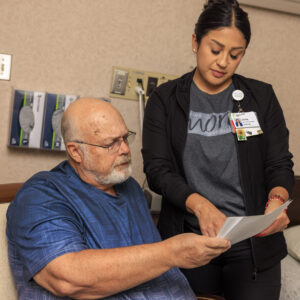
Before the mask issues were corrected, Bryon recalls getting roughly three hours of sleep at night, and it hardly felt like he was resting. There were frequent occurrences where he would wake up in the middle of the night which resulted in him being awake for hours. He would go to bed tired, wake up tired and overall did not feel well.
Now, thanks to his remarkable improvement, he gets nearly eight hours of sleep per night. Bryon also went from having over 60 episodes per hour to just 0.8 episodes per hour in less than two months.
Receiving a full explanation of the sleep study and taking the time to go through the results helped Bryon understand just how significant his improvements have been, and his knowledge of how to properly use a mask and the specific type of mask he needs have been a major factor in his improvements.
Looking back on where Bryon started to where he is today, it is a night and day difference thanks to the sleep studies and information shared with him. For anyone out there who feels like they could benefit from a sleep study, Bryon suggests getting one done given how important the results can be to help yourself achieve a better quality of life.
“The first step is asking your provider to order a sleep study. Learning how sleep can impact so many different things in your life is difficult to do without a base of information that you get from a sleep study.”
Bryon added, “I think you can learn a lot from a sleep study. Personally, if it were me, I would have somebody do a sleep study every 10 years or so just because…I cannot stress enough just how important a sleep study is. There are so many things from body chemistry to getting a good night’s sleep. If you don’t get REM sleep, you are never going to feel rested when you wake up.”
